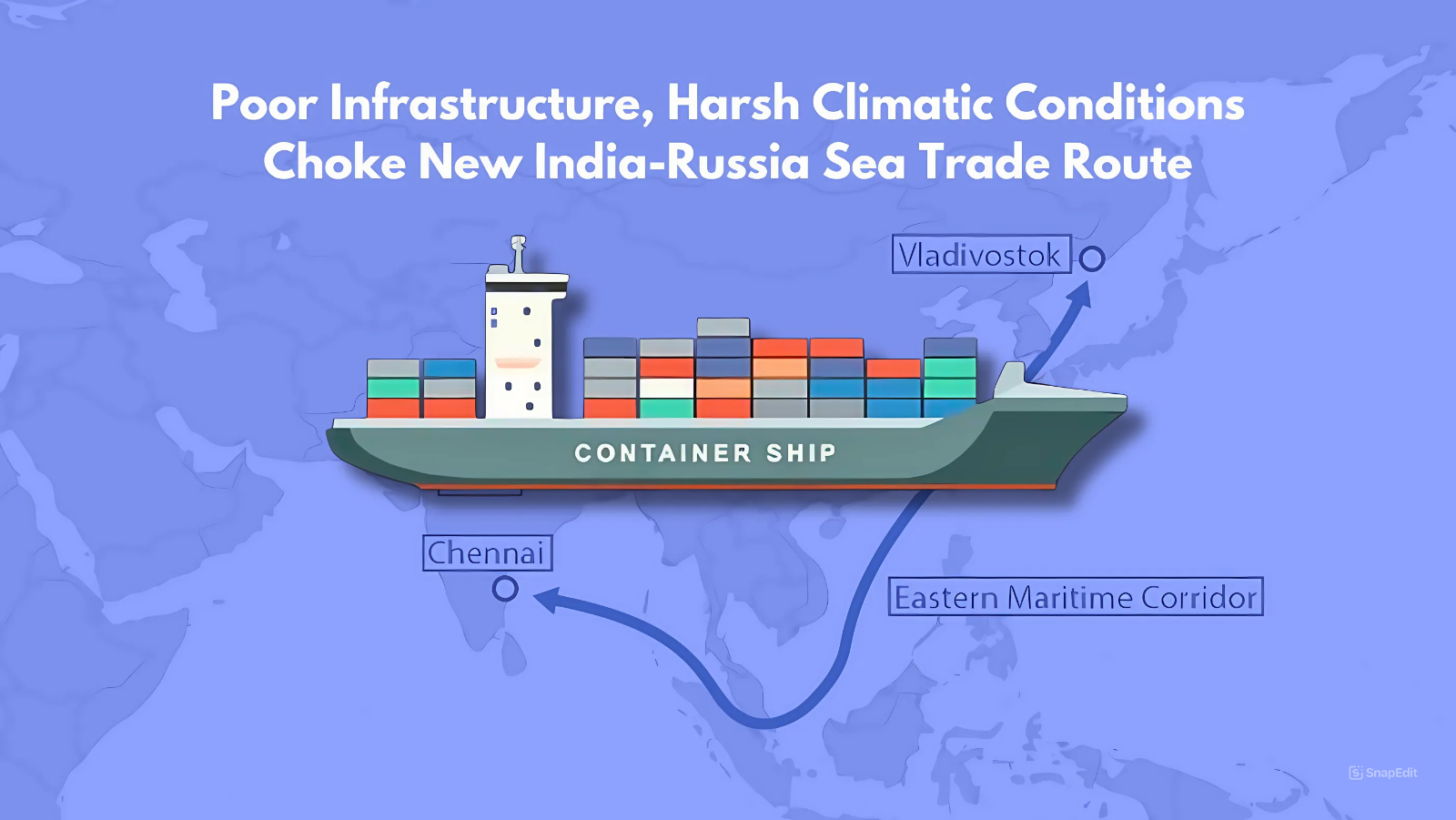Alenjith K Johny
Chennai | 23 August 2024
The India-Russia maritime corridor between Chennai and Vladivostok has seen sub-par business with imports of only 0.3mn metric tonnes of crude oil in financial year 2024, due to poor infrastructure, Covid19 and climate related issues.
Chennai Port handled approximately 0.4mn metric tonnes in the financial year 2024, data available with Chennai Port showed. For the financial year 2025, this is expected to increase to 0.6mn metric tonnes.
Containers transported to Russia through the new Far Eastern Corridor are not sent directly to Vladivostok; instead, they are transhipped through feeder ships, unlike crude oil and coking coal.
From January to May 2024, this corridor accounted for 87 containers in import, and 38 for export. This is significantly lower than the existing Mumbai-St.Petersburg route that shipped out 319 containers and received 863.
The new route aimed to transport five major items: crude oil, coking coal, fertilizer, liquefied natural gas (LNG) and containers but only transported coking coal and crude oil so far. This route is expected to reduce travel time from 40 days to 24 days, and decrease the distance upto 40%, in comparison to the existing route.
The new corridor will push India’s trade growth, said Prime Minister Narendra Modi, during a visit to Russia In July. The progress on the project has been limited, despite the signing of Memorandum of Understanding (MoU) in 2019.
“The feasibility study in the project delayed by more than two years due to COVID-19,”said Prasanth Muralidharan, Assistant Director of Chennai Port. He said that language barriers, the Red Sea crisis, and the Ukraine War further contributed to the setbacks.
The Corridor struggles with inadequate infrastructure. Russia needs to make improvements in draft size for handling larger volumes of goods. Chennai, on the other hand, already has the infrastructure in place.
The small draft sizes pose significant challenges and fixing them is expensive, said Mihir Sharma, Senior Fellow at Observer Research Foundation.
“Bureaucratic processes need to be streamlined for the project to speed up the project,” said Parimanam Thagappan, Secretary General of the Indo-Russian Chamber of Commerce.
At a recent meeting at Chennai Port on July 4, the port authorities and Russian stakeholders discussed the challenges of trade in commodities such as LNG and fertilizers, and road-blocks due to snow in the Far Eastern region, said an official on the condition of anonymity.
The new route has transformed exports by allowing direct shipments which earlier required an additional train journey of up to eight days, benefitting the transport of perishable goods from India to Russia, such as fruits, medical products and building materials, said Thagappan.

